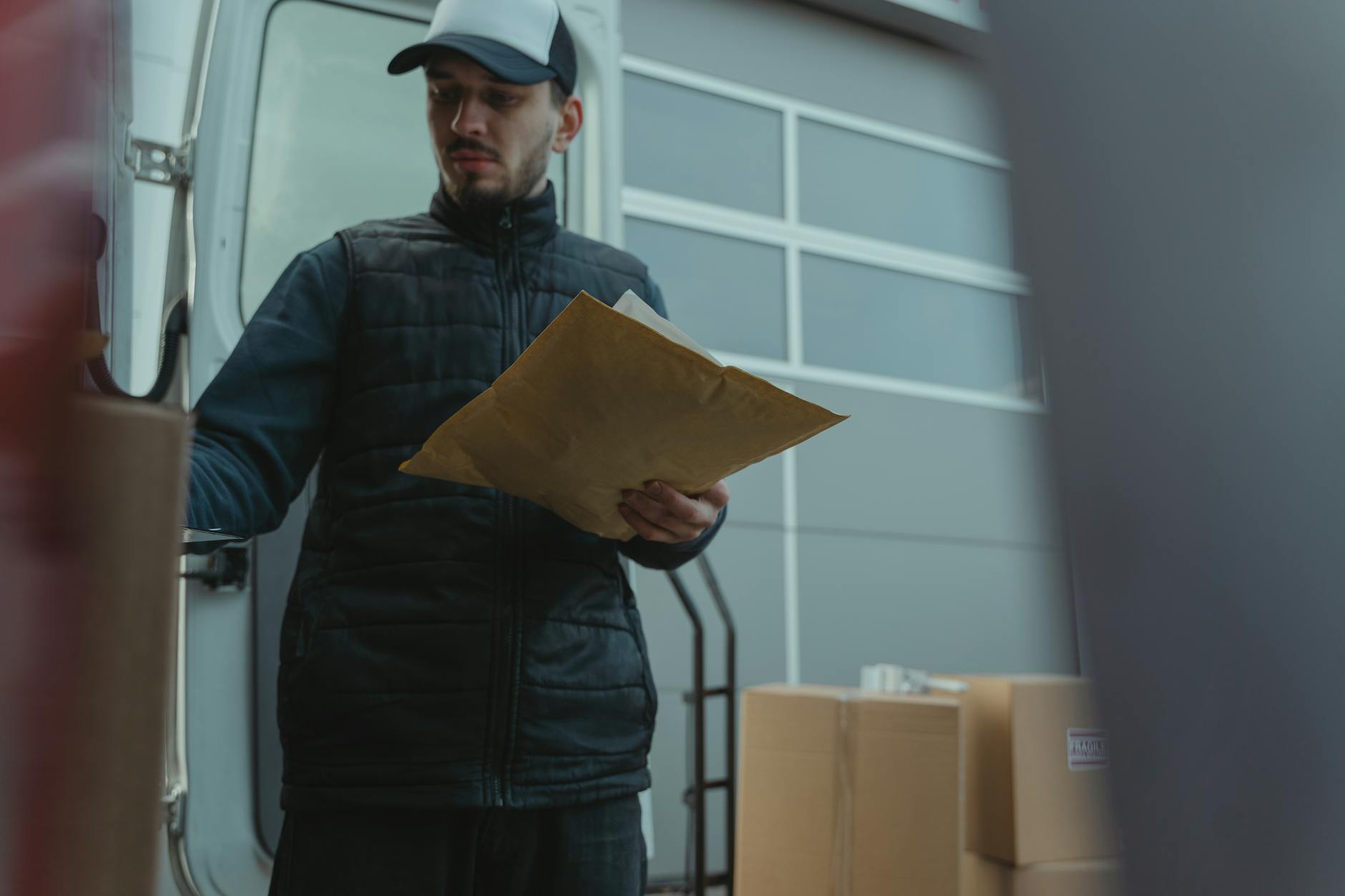What Makes Australia's Logistics Hubs Essential for Efficient Retail Operations

Understanding Logistics Hubs
In the bustling world of Port Melbourne, logistics hubs play a crucial role in facilitating smooth retail operations, ensuring that goods move efficiently from one point to another. As strategic nodes in the supply chain, these hubs orchestrate activities ranging from warehousing to distribution, integrating elements like storage, packaging, and shipping. Understanding the importance of hubs like Port Melbourne helps to grasp their contribution to the commercial fabric of Melbourne.
Function of Logistics Hubs
Logistics hubs serve as pivotal points in the supply chain, offering facilities for storage, shipment, and distribution. They centralise operations, thus reducing transit times and costs. By functioning as intermediaries, they balance the demands of suppliers and retailers, ensuring timely and efficient product movement. Key functions encompass inventory management, order fulfilment, and value-added services like assembly and labelling, making them invaluable in streamlining processes.
Components of a Hub
A logistics hub comprises several intertwined components. Warehousing facilities provide secure storage, while advanced transportation systems ensure seamless mobility. Technological infrastructure supports data-driven decision-making by enhancing operational visibility. This integration enables 3pl providers to optimise functionality, offering comprehensive third party logistics solutions that benefit businesses.
Role in Retail Operations
In retail operations, logistics hubs are the backbone of supply chain efficiency. They help manage inventory levels, minimise delivery times, and enhance customer satisfaction. A reliable hub supports agile and responsive retail strategies, accommodating fluctuating demand and ensuring consistent service quality. By aligning with a proficient 3PL provider, retailers can leverage these advantages, enabling them to focus on strategic growth rather than logistical complexities.
Strategic Locations in Australia
Major Logistics Hubs
Australia’s logistics landscape is as vibrant as its cityscapes, boasting strategic locations like Port Melbourne which not only serve as pivotal connectors but also enhance the efficiency of supply chains. For businesses like yours, understanding these key locations can provide a substantial edge in operations. The logistics hubs around Melbourne significantly contribute to the speed and resourcefulness of warehousing, making them a vital cog in the supply chain. Their strategic importance is emphasised by their proximity to major transportation routes and urban centres, ensuring goods move swiftly from production to consumer.
Connectivity and Accessibility
Connectivity is an integral part of Melbourne’s logistics success. The logistics hubs, including facilities near Laverton and Docklands, are closely linked to transportation frameworks. This connectivity aids not only in reducing transit times but also in cutting down on costs associated with moving goods. This seamless integration with transportation networks ensures that services such as warehousing sydney can handle even the most dynamic consumer demands efficiently.
Regional Impact on Retail
The positioning of logistics hubs has a profound influence on retail operations by enhancing delivery capabilities and optimising service quality. The infrastructure present in these strategic zones, such as the 3pl warehouse facilities, ensures that retail businesses can meet consumer expectations promptly. Moreover, the regional impact extends to driving competitive advantage for retailers, enabling them to fulfil customer orders with greater speed and accuracy. This foundation, not only supports existing operations but also sets the stage for future growth.
Benefits for Retail Operations
Streamlining Supply Chains
The key to efficient retail operations lies in streamlining supply chains. This is where the art of pick and pack comes into play. By effectively managing this process, retailers can ensure the accurate and timely sorting of products for dispatch. In Melbourne, logistics hubs like those in Port Melbourne offer a strategic advantage in this aspect, enabling businesses to operate smoothly and minimise transit times.
Optimising inventory levels also proves crucial in maintaining a fluid supply chain. Warehousing facilities around Laverton are exemplary, providing businesses with organised storage solutions. With smart inventory management, retailers can avoid overstocking or understocking, ultimately reducing costs and improving customer satisfaction.
Enhancing Delivery Speed
Enhancing delivery speed is a critical factor in driving customer satisfaction and loyalty. Third-party logistics (3PL) services are instrumental in achieving this, as they specialise in pick packing, transportation, and comprehensive shipping services. When businesses partner with efficient 3PL providers, they leverage expertise that enhances delivery timing and navigation.
Collaboration with logistics services around the Docklands business district, for instance, ensures that businesses can meet delivery promises promptly, building a robust reputation among customers.
Optimizing Inventory Management
Efficient inventory management involves more than just stock monitoring—it's about synchronising demand with supply. Systems utilising automation and real-time data analysis enable retailers to anticipate customer needs and manage stock accordingly. Partnering with reliable pick and pack services can further simplify the movement and handling of goods, allowing for a more responsive and agile approach.
Incorporating smart logistics strategies bolsters a business's ability to serve its customers consistently and effectively, laying a foundation for long-term growth and operational success.
Efficient Practices in Logistics
Integrating Technology
Adopting cutting-edge technology is essential for streamlining ecommerce logistics. By utilising smart automation in warehouses, along with advanced data analytics, businesses can significantly enhance order accuracy and reduce manual errors. For instance, implementing warehouse management systems can optimise the picking and packing processes, ensuring orders are completed swiftly and accurately. RFID technology and IoT devices can further facilitate real-time tracking of inventory, allowing for more precise inventory management.
Collaborating with Third-Party Providers
To achieve seamless supply chain operations, partnering with expert 3pl logistics providers becomes crucial. These providers offer flexible solutions tailored to your needs, from warehousing and distribution to freight management. In Melbourne's logistics landscape, notably around hubs like Port Melbourne, leveraging third-party expertise ensures your business can scale operations without the overhead of maintaining physical storage and handling facilities. Such collaborations also benefit from economies of scale, potentially reducing shipping costs and enhancing delivery efficiency.
Fostering Sustainable Practices
Sustainability is gaining traction in the logistics sector, with many businesses striving to reduce their carbon footprint. Efficient route planning, using eco-friendly packaging, and consolidating shipments are some practices that companies can adopt to support sustainable logistics. Moreover, aligning with logistics partners who prioritise environmental responsibility can further strengthen your brand's commitment to sustainability. Moving towards more sustainable operations not only meets the growing consumer demand for eco-friendly choices but also positions your business as a forward-thinking enterprise.
Implementing these strategies will set your business on a path to improving logistics efficiency and sustainability, preparing you for long-term success in an increasingly competitive market.
Challenges in Logistics and Strategic Solutions
Navigating Regional Variabilities
In the bustling labyrinth of Port Melbourne and across the sprawling warehouses of Laverton, logistics professionals grapple with regional variabilities daily. From the coastal atmospheric conditions affecting freight in Brisbane to the fluctuating demand patterns seen in Perth, it's crucial for logistics managers to quickly adapt. The secret lies in robust data analytics, which helps tailor solutions to local conditions. By leveraging local insights, one can adjust inventory levels and refine delivery schedules, optimally utilising regional resources.
Overcoming Infrastructure Limitations
Australia's geographical vastness presents unique challenges, especially when it comes to infrastructure. Areas between the bustling Docklands business district and remote regional centres can face connectivity hurdles. Investing in alternative transport modalities like intermodal rail solutions, where possible, can mitigate some of these limitations. Furthermore, exploring collaborations or partnerships with third-party logistics providers can ensure that goods are moved efficiently, even when primary routes are saturated or suboptimal.
Action Items for Retail Success
Finally, to thrive in such a dynamic environment, retail operations must be agile. Begin by empowering your logistics team with cutting-edge technology, such as GPS tracking and AI-driven forecasting, to enhance supply chain visibility. As you experiment with various approaches, ensure sustainability remains a priority, embracing greener options wherever feasible without compromising efficiency. This strategy is pivotal for maintaining a competitive edge, particularly in fast-paced markets like those surrounding Melbourne's logistics hubs.


